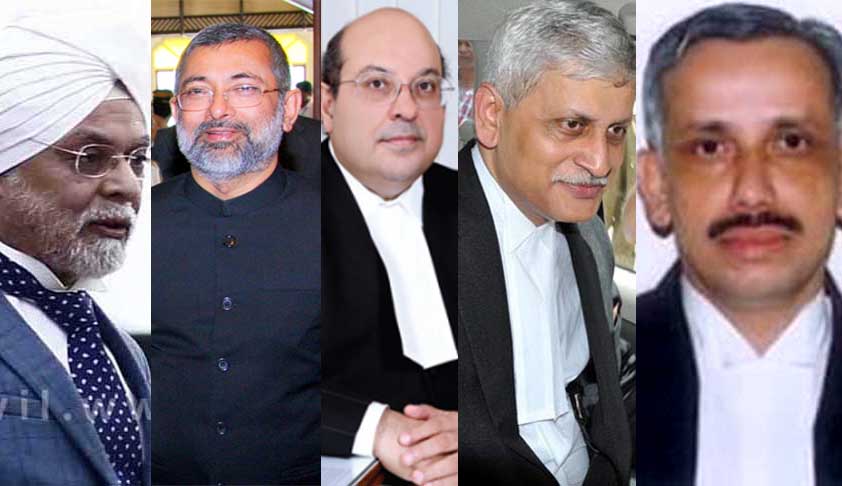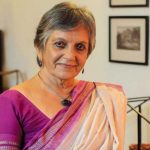Contradictions, Confusions & Lighter Moments During Triple Talaq Hearing
Flavia Agnes
15 Jun 2017 1:57 PM IST

The six-day hearing on triple talaq, which concluded on May 18, revolved mainly around the Constitutional safeguards enshrined in Articles 14 and 15 (gender equality and non-discrimination) at one end, protection to minorities guaranteed in Articles 25 and 26 at the other end, and the delicate balance between these two sets of fundamental rights.
That each one of the senior lawyers, who addressed the Constitutional bench on behalf of their clients of different hues, divided broadly along the binaries of abolitionists versus non-abolitionists, is an expert on Constituional Law, is beyond doubt.
But as the arguments unfolded and their grasp over family laws was put on test, they fumbled which resulted in several faux pas on some basic premises of family law.
For instance, senior lawyer Mr. Amit Chadha, appearing for Shayara Bano, advanced a mistaken argument that after the enactment of the Dissolution of Muslim Marriages Act (DMMA) in 1939, it was mandatory for Muslim women to obtain a khula in court.
A ripple went through the packed court room when Attorney General Mr. Mukul Rohatgi endorsed this view.
Scores of lawyers representing various interveners fumbled as they were not sure.
Finally it was left for Mr. Arif Mohammed Khan, Law Minister in the Rajeev Gandhi government and an expert on Quranic law, to clarify the confusion.
He explained the correct legal position that while the DMMA offered an additional avenue for Muslim women to obtain a judicial decree of dissolution of marriage (fasq), it did not take away the right granted to them under Sharia to obtain a khula through a qazi.
It seemed that no one had done any research about the situation prevailing on the ground. It is true that though Muslim (and Hindu) women have a right to approach civil courts, due to poverty, illiteracy and fear of courts, most women from marginalised sections prefer to approach informal dispute resolution fora such as village panchayats, caste panchayats or religious bodies such as darulqazas (sharia courts) because the procedure is simple and inexpensive as compared to a civil suit.
When a woman approaches a darulqaza, a notice is sent to her husband to appear, and if he does not turn up, the qazi dissolves the marriage.
There is a misconception that a woman must necessarily forego her mehr (the amount given to her by her husband at the time of marriage), but this is not mandatory.
Additionally, the right to a lump sum settlement under the Muslim Woman (Protection of Rights upon Divorce) Act, 1986 (MWA) is not extinguished if she obtains khula. Further, if the woman is not satisfied with the verdict of the darulqaza, the option of approaching a civil court for relief is wide open and she is not bound by the verdict of the qazi, as stipulated in Vishwa Lochan Madan v. Union of India [ (2014) 7 SCC 707].
A recent study conducted by the National Academy of Legal Studies and Research (NALSAR), Hyderabad, regarding women’s access to justice in darulqazas has thrown up some interesting facts.
In 75 darulqazas that were studied, the gender ratio was around 70% women as opposed to 30% men. Interestingly, 12 darulqazas stated that over 90% of those who approached them were women and another 46 stated that 70-90% of their clientele is women.
While men approached them for restitution of conjugal rights, women approached them mainly for khula.
This indicates that women find darulqazas more approachable than formal courts. A study of cases filed in family courts would also substantiate this.
The study also brought out certain other interesting facts –
- 73 darulqazas mentioned that they never permit a husband to pronounce triple talaq and all divorces were through talaq-e-ahsan mode (over the mandatory three-month period).
- Almost all darulqazas (99%) stated that the qazi ensures that the meh rdues are paid, maintenance for the iddat period is given and valuables and ornaments are returned to the wife before the marriage is dissolved.
- The mehr amount in majority of cases was more than Rs. 20,000, and in a few cases, more than Rs.50,000.
- The custody of minor children was usually given to the mother and they claimed that they ensure that the husband provides maintenance for minor children.
- Majority of cases were settled within a period of six months.
- The cost of proceedings was between Rs. 200 and Rs. 1,000.
- 68 darulqazas stated that women never leave them and approach the police or a court to resolve their disputes.
It is interesting that while arguing that all Muslim divorces should take place only in court, the Attorney General did not advance any arguments nor produce any studies in support of his contention as to why recognition awarded to darulqazas as informal arbitration fora in Vishwa Lochan Madan should be withdrawn.
Another embarrassing moment was when countering Mr. Raju Ramachandran’s submissions that if a couple does not wish to follow the Hanafi law they have an option of registering their marriage under the Special Marriage Act, Ms. Indira Jaising, appearing for Bebaak Collective, posed the question, ‘Why should I be compelled forsake my religion and marry under the Special Marriage Act?’
Again there was confusion and some judges sought clarification.
At that point, Mr. Salman Khurshid, who was present as amicus curiae (who is married to a Christian), informed the court that he may be one of the very few who has undergone three different marriage ceremonies –Christian, Muslim and under civil law.
He clarified that the requirement of relinquishing one’s religion had been abolished a long time ago.
Then some judges probed further as to whether a Muslim marrying under this Act is entitled to a polygamous marriage. The answer is a clear ‘no’.
The judges then probed further as to which law of succession would apply to the couple and their children.
The answer is the Indian Succession Act, 1925, which is the most modern and gender-just law as compared to both Hindu and Muslim laws of succession.
A lawyer practising in the family court would be familiar with these situations as one comes across several cases of inter-community marriages performed under the Special Marriage Act. So, it came as a surprise to me that at the highest echelons of justice, there was ambiguity regarding these basic rules.
The Special Marriages Act, enacted in 1872 in response to the demand by Brahmo Samaj, is that since they did not perceive themselves as Hindus and did not want their marriages to be performed through Brahminical rituals, they wanted a secular law. Though initially a declaration had to be made regarding relinquishing one’s religion, this clause was removed in 1923.
The Special Marriage Act, which was re-enacted in 1954, was viewed as an optional civil law of marriage which anyone could opt for at any time - before or any time after the religious ceremony.
It has an overriding effect, irrespective of whether the religious marriage was performed prior or subsequent to the registration of marriage under the Special Marriage Act.
Another interesting moment was when Ms. Jaising started her argument with the infamous quote from the 1984 Delhi High Court ruling in HarvinderKaur v. Harminder Singh (AIR 1984 Del 66) where, while upholding the gender discriminatory provision under Section 9 of the Hindu Marriage Act (restitution of conjugal rights), it was held that the introduction of Constitutional principle into the bedroom would wreck marriages - it would be like introducing a bull in the china shop.
Though the analogy of “bull in the china shop” was made in a totally different context, of extending her arguments beyond the strict parameters of validity of triple talaq to the moot question - whether personal laws can be tested against the touch stone of Constitution, no one could miss the irony.
However, within the emotionall- charged atmosphere, where everyone was jostling for time, no one paused to make the link between the author of this judgment Justice AB Rohatgi and his son, Mr. Mukul Rohatgi, the present Attorney General, who was pressing the point on behalf of the government that tested against the touch stone of Constitution, Muslim law is highly gender unjust and his government will introduce a legislation to ban all types of talaqs and ensure that all Muslim divorces take place only within the precincts of civil courts, a situation which is not existent even under the codified Hindu law!
Overall, the six-day marathon debate was not without its contradictions, confusions and lighter moments.
 Flavia Agnes is a legal scholar and women’s rights lawyer. She is the founder and director of Majlis, an NGO which has intervened in the triple talaq case.
Flavia Agnes is a legal scholar and women’s rights lawyer. She is the founder and director of Majlis, an NGO which has intervened in the triple talaq case.


